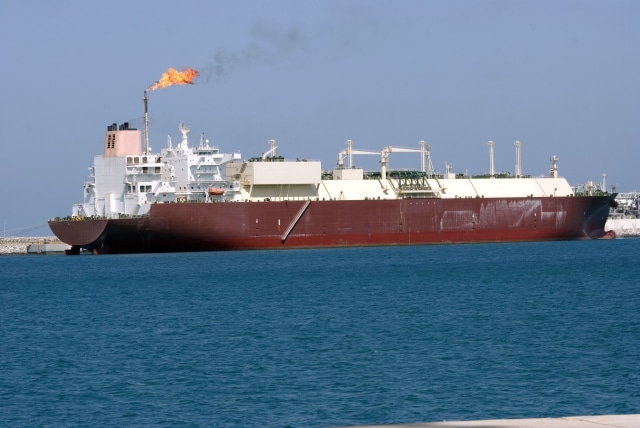Co-Written with Caroline Selle
An August 6 court decision handed down by Calvert County Circuit Court Judge James Salmon could put Dominion Resources’ timeline for its proposed Cove Point liquefied natural gas (LNG) export facility in jeopardy.
Salmon ruled that an ordinance exempting the Lusby, Md.-based LNG project from local zoning laws — Ordinance 46-13 — violated both a section of a state Land Use law, as well as Maryland’s constitution. The facility will be fueled by gas obtained via hydraulic fracturing (“fracking”).
In the ruling, Judge Salmon described the zoning exemption as “a very unusual situation.” In 2013, the Calvert County Board of County Commissioners and the Calvert County Planning Commission carved out both LNG export and import facilities from zoning laws.
“To my knowledge no other municipality or county in Maryland has attempted to do what the Calvert County Board of County Commissioners has attempted to do, i.e. completely exempt two uses from being covered by zoning regulations while requiring everyone else in the County to abide by those regulations,” wrote Salmon.
Environmental groups fighting against the Cove Point LNG export terminal hailed Salmon’s judgment as a major grassroots victory.
“At a minimum, this ruling will likely cause real delay in the ability of Dominion to begin major construction of this controversial $3.8 billion fossil fuel project,” Mike Tidwell, executive director of Chesapeake Climate Action Network (CCAN), said in a press release. “The ruling should certainly give pause to the Wall Street investors that Dominion is seeking to recruit to finance this expensive, risky project.”
The plaintiffs in the lawsuit, AMP Creeks Council (shorthand for Accokeek Mattawoman Piscataway Creeks Council), came to a similar conclusion.
“This is a remarkable victory for the people of Lusby, Maryland, and folks fighting fracking and LNG exports throughout the Mid-Atlantic region,” Kelly Canavan, President of AMP Creeks Council, said in a press release.
Yet, Salmon concluded the ruling out by stating his decision “has no direct bearing on whether the facility will be built or not.” And even AMP Creeks acknowledged in its press release that its legal team “is still sorting out the implications of this ruling.”
Further, Canavan told DeSmogBlog in an interview that she agrees with Salmon, at least in terms of the legal argument he put forward about his role in the final destiny of the Cove Point LNG export facility.
“Even if he wanted to, he does not have the power to determine whether or not the facility will be built,” she said. “It doesn’t mean there won’t be a ripple effect.”
So, what gives? Is the decision a game-changer or something less? Dominion certainly thinks the latter, based on a review of its quarter two earnings call transcript.
Dominion Expects Federal Permit in “next few weeks”
During his company’s quarter two earnings call held prior to Salmon handing down the Calvert County ruling, Dominion CEO Thomas Farrell II told those listening that he expects to receive a final LNG export license from the U.S. Federal Energy Regulatory Commission (FERC) in the “next few weeks.”
“We expect to receive FERC order approving the project in the next few weeks and begin construction shortly thereafter,” Farrell said on the call. “The Cove Point Liquefaction is expected to begin operations during the fourth quarter of 2017.”
Canavan believes Farrell’s rosy prospectus appears unlikely, however.
“We obviously disagree with that, partly because if it wouldn’t delay the project to have to go through these processes, there wouldn’t have been any need to pass the ordinance in the first place,” she said.
Calvert County Board, Dominion React
In the aftermath of the ruling, Dominion made a statement, appearing to stand by its quarter two investor call. “We are reviewing the decision in detail and do not see any schedule impact,” said the company in a press release.
Meanwhile, the County Board stood by its original decision to offer Dominion a zoning exemption, saying Salmon’s ruling would be discussed at its then-upcoming August 19 meeting.
“[T]he premise behind the zoning exemption remains legitimate,” said the Board in a collective statement offered to the press. “It recognizes that review and inspection of these types of highly technical, stringently regulated projects should be conducted by experienced federal and state regulators due to the rigorous standards they must meet.”
A DeSmogBlog review of meeting minutes for that date and for the upcoming August 26 meeting shows the topic was never put on the agenda, though.
Which leaves us where we started: what’s the future of the prospective Cove Point LNG terminal? Your guess is as good as ours.
Photo Credit: Shutterstock | Gustav
Subscribe to our newsletter
Stay up to date with DeSmog news and alerts






